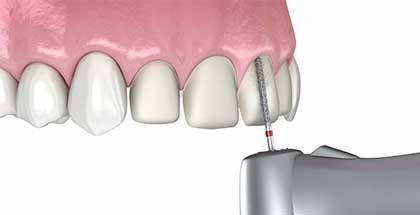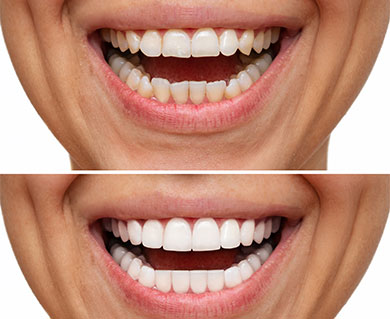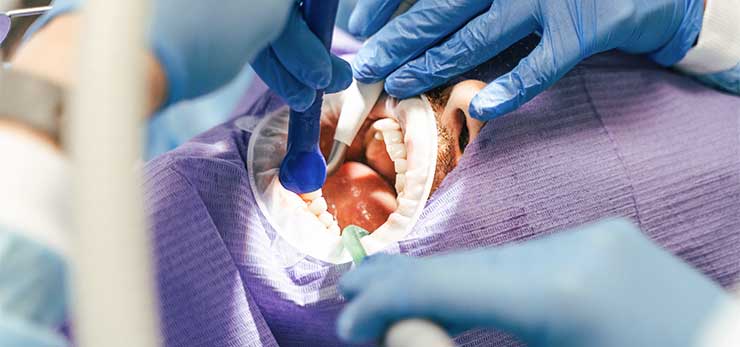Your Journey to A Star-Studded Smile
Begins With Glenn Smile Center.
Contact Us Today!
If you're in tooth pain and pondering, what Dental Practice offers the best
Glenn Smile Center Is your first call!
Teeth bonding, also known as dental bonding or composite bonding, is a minimally invasive and cost-effective solution for repairing teeth that are chipped, discolored, or slightly misaligned. This versatile cosmetic dentistry technique involves applying tooth-colored composite resin material to your teeth and skillfully shaping it to correct aesthetic imperfections. The result? A flawless smile that radiates confidence.

Main Advantages of Tooth Bonding
Preserves Tooth Structure
Unlike other dental procedures like veneers or crowns, tooth bonding is a conservative treatment that doesn’t require significant tooth reduction or reshaping.
Affordable & Efficient
Tooth bonding is budget-friendly compared to other cosmetic dentistry treatments and can be completed in just one office visit.
Natural & Customizable
Unlike other dental procedures like veneers or crowns, tooth bonding is a conservative treatment that doesn’t require significant tooth reduction or reshaping.

The Tooth Bonding Process
Unlike other dental procedures like veneers or crowns, tooth bonding is a conservative treatment that doesn’t require significant tooth reduction or reshaping.

Assessment & Preparation
During your initial consultation, your dentist will evaluate the condition of your teeth and determine if tooth bonding is the right solution for your needs. The dentist will select a shade of resin that closely matches your teeth.

Etching & Conditioning
The dentist will lightly etch the tooth surface to enhance the bonding process. An adhesive substance, known as a bonding agent, is applied to your tooth's surface to facilitate better adherence to the composite resin.

Applying the Composite Resin
The chosen color of composite resin is molded and skillfully shaped on your tooth to achieve the desired aesthetic improvement. This material is incredibly versatile, allowing the dentist to sculpt it into the perfect shape and size for seamless integration.

Curing & Polishing
Once the resin is expertly applied and shaped, a specialized light is used to harden the material. The dentist will then polish the bonded tooth, ensuring its surface has a smooth and natural finish to blend seamlessly with your surrounding teeth.
Why Trust Our Dental Practice?
Dental bonding, offered by Glenn Smile Center, is a straightforward, economical solution that can enhance your smile and uplift your confidence. It's perfect for anyone looking to correct minor teeth flaws and simple oral challenges. With proper care and hygiene, your bonded teeth can radiate for years. Experience the immediate benefits of dental bonding, and let your smile truly shine.

Dental bonding, offered by Glenn Smile Center, is a straightforward, economical solution that can enhance your smile and uplift your confidence. It's perfect for anyone looking to correct minor teeth flaws and simple oral challenges. With proper care and hygiene, your bonded teeth can radiate for years. Experience the immediate benefits of dental bonding, and let your smile truly shine.


A variety of elements influence the cost of teeth bonding including the number of teeth that require bonding, the complexity of the treatment, the types of materials used, and the dentist's skill level. Generally, teeth bonding is considered a more pocket-friendly option for cosmetic dental procedures. Your dentist can give you a personalized quote for a more clear understanding of the costs Your dental insurance coverage also significantly affects the final cost. Geo-specific cost variance is another consideration, with costs typically higher in cities due to increased overhead.
Dental Bonding
Dental Bonding involves applying a tooth-colored composite resin to the teeth to improve their appearance.
Pros:
Cons:
Porcelain Veneers
Porcelain Veneers are custom-made, thin sheets of porcelain that are bonded to the front of the teeth..
Pros:
Cons:
Caring Dentistry You Can Rely On
Call us for an appointment today
If You're In Search of ...

Or Seeking...

Or Wondering, How do i find...

Table of Contents
Toggle